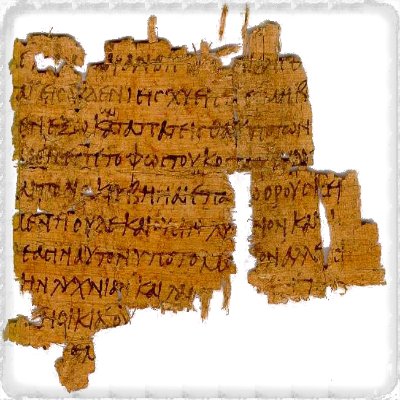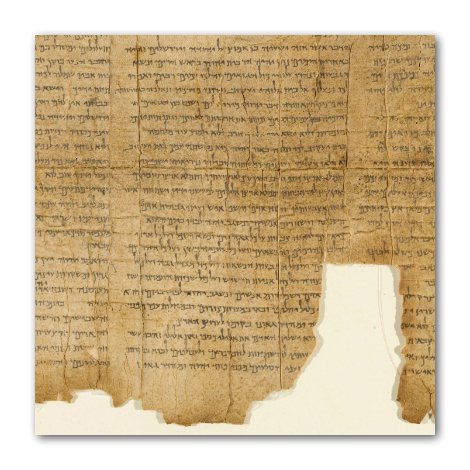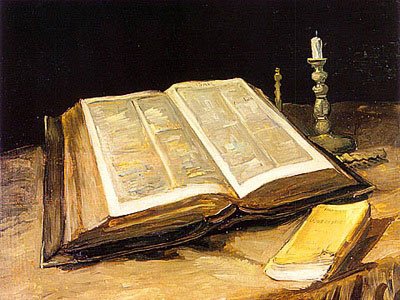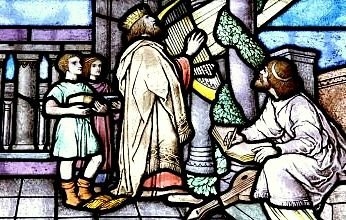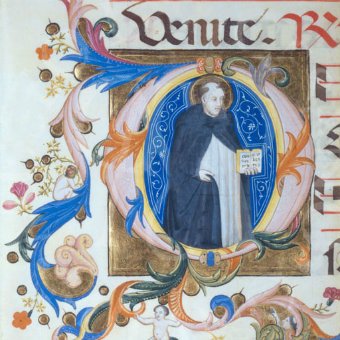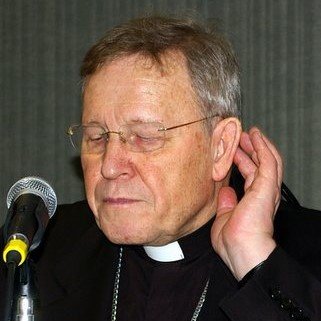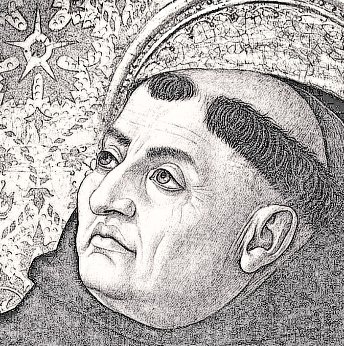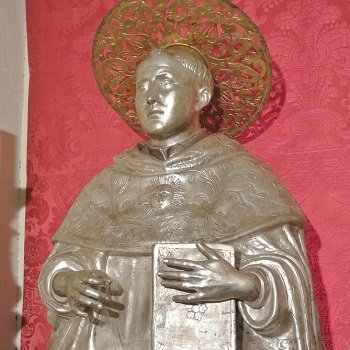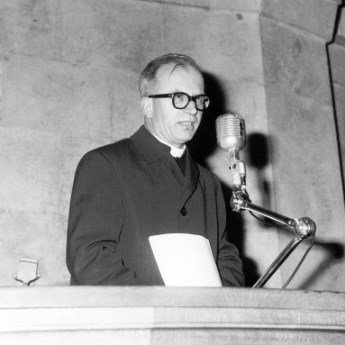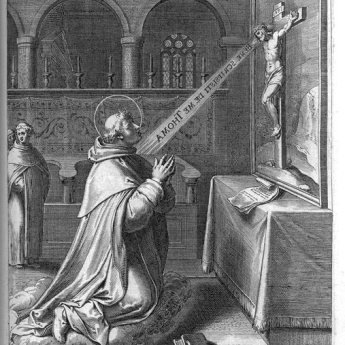LA VIRTUD DE LA OBEDIENCIA EN SANTO TOMAS Su naturaleza volitiva e intelectual Naturaleza y objeto Es en la Suma Teológica, II-II, q.104, donde Santo Tomás desarrolla el tratamiento de esta virtud de modo más sistemático, aunque no es el único lugar de sus obras en el cual toca el tema.[1] En la Suma, brevemente, hablando de su naturaleza en cuanto virtud, afirma “que no es una virtud teologal, porque su objeto no es propiamente Dios, sino el mandato de …
La doctrina Tomista de los sentidos bíblicos (VII), P. Lic. Martín Villagrán IVE
Consideraciones conclusivas Como conclusión de nuestro trabajo, repasaremos sumariamente el camino recorrido a fin de obtener el panorama de lo dicho y destacar ciertos elementos que juzgamos centrales. Si bien el corazón del trabajo ha sido el tratamiento de la doctrina y la praxis tomistas, hemos considerado que el punto introductorio dedicado a Lc 24 podría iluminar en algún modo lo que habríamos de exponer. En este sentido, la consideración del último capítulo del Evangelio del apóstol san Lucas, ha …
La doctrina Tomista de los sentidos bíblicos (VI), P. Lic. Martín Villagrán IVE
b. El cuerpo del comentario al Salmo El comentario a este Salmo tiene un fuerte contenido cristológico que trataremos de presentar en su diversidad y complejidad. Para Santo Tomás este Salmo se refiere de modo especial a Cristo ya que es el Señor que en la cruz lo ha recordado (cfr. Mt 27,46; Mc 15,34) y es la Iglesia la que así lo entendió siempre hasta el punto que fue condenado quien lo negó[1]. Aunque ciertamente conoce y considera la …
La doctrina Tomista de los sentidos bíblicos (V), P. Lic. Martín Villagrán IVE
3. El Comentario de santo Tomás al Salmo 22 (21) Para presentar el comentario del Aquinate al Salmo en cuestión, podemos distinguir tres momentos: una breve aunque importante introducción; la interpretación del título y finalmente la rica exposición del texto bíblico. a. Introducción “En (los Salmos) precedentes se trata primeramente de la tribulación que sostuvo David de parte del hijo y de parte de Saúl; pero aquí, en esta tercer decena, trata de la persecución que padeció de parte de …
La doctrina Tomista de los sentidos bíblicos (IV), P. Lic. Martín Villagrán IVE
III. Los sentidos bíblicos en los Salmos Es el momento de realizar esta incursión parcial en la praxis exegética de santo Tomás para ver, por una parte, si existe coherencia con lo antes expuesto y, por otra, para tener una perspectiva más amplia de esta doctrina tomista. La obra elegida hemos dicho que será el comentario a los Salmos, del cual nos interesa el rico proemio en que se establecen criterios fundamentales para el desarrollo del libro y que se …
La doctrina Tomista de los sentidos bíblicos (III), P. Lic. Martín Villagrán IVE
2. Un intento de síntesis Ya es momento de recolectar las diversas observaciones realizadas y tratar de presentarlas lo más fiel y substancialmente posible. Por esto proponemos unas definiciones de los elementos más importantes de esta doctrina e individualizamos algunos principios que se encuentran incorporados en estas exposiciones tomistas que hemos seguido. Evitaremos las palabras superfluas y trataremos de que nuestra propuesta de definición abarque exhaustiva y armónicamente los diversos puntos destacados en las páginas precedentes. a. Propuesta de definiciones …
El idealismo alemán y el proyecto teológico del cardenal Kasper, Prof. Thomas Heinrich Stark
El idealismo alemán y el proyecto teológico del cardenal Kasper Prof. Thomas Heinrich Stark[1] En orden a entender la posición tomada por el cardenal Kasper en el Sínodo de las Familias es necesario familiarizarse con los temas básicos de su teología y sus principios sobre los cuales se basa. La Iglesia es un atascadero; este siempre ha sido el caso, especialmente en el período de su establecimiento y su subsecuente primer desarrollo en la Cristiandad primitiva de la Antigüedad. Este …
La doctrina Tomista de los sentidos bíblicos (II), P. Lic. Martín Villagrán IVE
II. Los sentidos bíblicos en Santo Tomás de Aquino 1. Doctrina tomista de los sentidos bíblicos a. Scriptum super libros Sententiarum, I, prol., q. 1, a. 5.: sobre el modus procedendi de la Doctrina Sacra b. Quaestiones disputatae De potentia, q. 4, a. 1, c.: interpretación del relato bíblico de la Creación c. Quaestiones de quolibet, VII, q. 6, a. 1-3: Sobre los sentidos de la sagrada Escritura d. Expositio et lectura super epistolas Pauli Apostoli. Ad Galatas, c. 4, lect. …
La doctrina Tomista de los sentidos bíblicos (I), P. Lic. Martín Villagrán IVE
La doctrina Tomista de los sentidos bíblicos a la luz de Lc 24 y aplicada al Salmo 22 (21) Presentación I. Lucas 24 como ámbito interpretativo de la sagrada Biblia Los hechos del Domingo de Lc 24 Observaciones a partir del texto bíblico Algunas adquisiciones Presentación Luego del concepto fundamental de la ciencia exegética (el concepto de inspiración bíblica), quizás uno de los más importantes sea el de sentido bíblico. Una rica tradición, precisada cada vez más y más con …
Scholastic and modern formalism: a continuous path down
[Exposition in the Thomistic Studies 2014: ens-esse; the return to the fundament] This work is about Modern formalism or essentialism. After having seen some historical works about the sources of Saint Thomas Aquinas’ thought, these two works about scholastic and modern formalism are focused on showing a wrong understanding of the primacy of the actus essendi in the ens. The main thesis I want to show has three branches: 1) First, there is a continuous path of the forgetfulness of …
The intensive hermeneutics of Thomistic philosophy: the notion of participation, by Cornelio Fabro (VII)
VII Whereas Platonic vertical participation is actualized merely as imitation of the Idea and hence as a fall, as it were, into non-being and the phenomenon, the Aristotelian horizontal causality is like an endless repetition of universal essence in the singulars. The result is that both theories tend to emphasize formal univocity. In contrast, the Thomistic notion of participation, founded in esse as supreme intensive act, makes it possible to pass from finite to Infinite Being through analogical discourse, which …
The intensive hermeneutics of Thomistic philosophy: the notion of participation, by Cornelio Fabro (VI)
VI To the extent that participation allows one to conceive the created universe in the complexity of its natures as a reflection of divine ideas or exemplars, one may speak of participation by similitude (per similitudinem) in the transcendental order according to a relation of dependence of the finite on the Infinite. This has been expressed by Boethius in the following terms: “From these forms, which are beyond matter, stem the other forms that are in matter and make up …
The intensive hermeneutics of Thomistic philosophy: the notion of participation, by Cornelio Fabro (V)
V From the preceding discussion it becomes clear that in Thomistic speculation the notion of participation expresses the ultimate point of reference both from the static viewpoint of the creature’s structure and from the dynamic viewpoint of its dependence on God. This notion takes from Platonism the idea of exemplar relationship and absolute distinction between participating being and Esse subsistens, and from Aristotelianism the principle of real composition and real causality at every level of participated, finite being. To assert, …
The intensive hermeneutics of Thomistic philosophy: the notion of participation, by Cornelio Fabro (IV)
IV St. Augustine developed his philosophy outside the Proclian line of thought mentioned above. Not knowing the works of Aristotle, he could not attempt a dialectical synthesis of the two philosophers; instead he directly raised Plotinian Neoplatonism to the highest level of Christian thought. Thus his notion of participation aims to provide a basis for the “catharsis” of the soul in its [461-462] approach to the divine Ideas contained in the eternal Word “the vision of which [the ideas] makes …
The intensive hermeneutics of Thomistic philosophy: the notion of participation, by Cornelio Fabro (III)
III To the Platonic doctrine of participation based on imitation and transcendence, Aristotle opposed the immanence of the form in sensible substances and the causality of the individual singular in the process of natural becoming. At this point Greek thought did not seem to offer any way out of the impasse in which it found itself. Indeed, if Aristotle was right in vindicating the reality of sensible substance, this latter could not be viewed by him as the perfect substance. …
The intensive hermeneutics of Thomistic philosophy: the notion of participation, by Cornelio Fabro (II)
II In ordinary usage participation has a sociological meaning that can be extended to include all relations pertaining to the union of the members of a collectivity for the objectives and purposes that concern them in one way or another. This kind of participation may refer to knowledge or will, sentiment or activity, as the following expressions indicate: to participate in news, a happy or unhappy event. Such applies not to any person whatsoever but to one who can or …
The intensive hermeneutics of Thomistic philosophy: the notion of participation, by Cornelio Fabro (I)
[The review of metaphysics, March 1974, volume XXVII, Nº 3 issue Nº 107, 449-490] I [449] In the platonic tradition, the term “participation” signifies the fundamental relationship of both structure and dependence in the dialectic of the many in relation to the One and of the different in relation to the Identical, whereas in Christian philosophy it signifies the total dependence of the creature on its Creator. The term participation has played an extensive role in Patristic and medieval speculation. …
St. Thomas Aquinas: Theologian and Mystic, by Jean-Pierre Torrell O.P.
THE TITLE of this study may be surprising.[1] Thomas Aquinas is unquestionably a great theologian, but is he also a mystic? A preliminary answer to this question could be found in the fact that he is a canonized saint, and that, in one way or another, God was at the heart of his life, as is true of all saints. While this answer is certainly true, it is not specific enough. Since this saint is a theologian, we can disregard …
Esencia de la Herejía Progresista: delito de sedición, por Fr. A. García Vieyra (último)
Entraña el delito de sedición en el seno del cuerpo político. Santo Tomás, después de tratar de la guerra o conflicto armado entre dos Estados, o bien el duelo o riña entre personas particulares, trata de la sedición, que es el conflicto armado entre partes de la misma multitud que disienten entre sí, cuando una parte intenta agredir a la otra parte. Tenemos sedición, entonces, no cuando hay guerra, ni cuando se trata de un tumulto callejero, sino cuando en …
Esencia de la Herejía Progresista: Teología Latinoamericana, por Fr. A. García Vieyra (V)
TEOLOGÍA LATINOAMERICANA El punto de partida de la Teología Latinoamericana es el antropocentrismo profesado por la nueva iglesia. Antropocentrismo no significa ocuparse de los problemas del hombre teológicamente. Ya hemos expuesto cómo la concepción de la naturaleza humana está viciada de un falso sobrenaturalismo de origen protestante, que hemos asimilado a la doctrina condenada ya de Miguel Bayo; según Rahner, Metz y otros, la Redención está cumplida y acabada en cada uno de los hombres; Cristo no asume una naturaleza …

